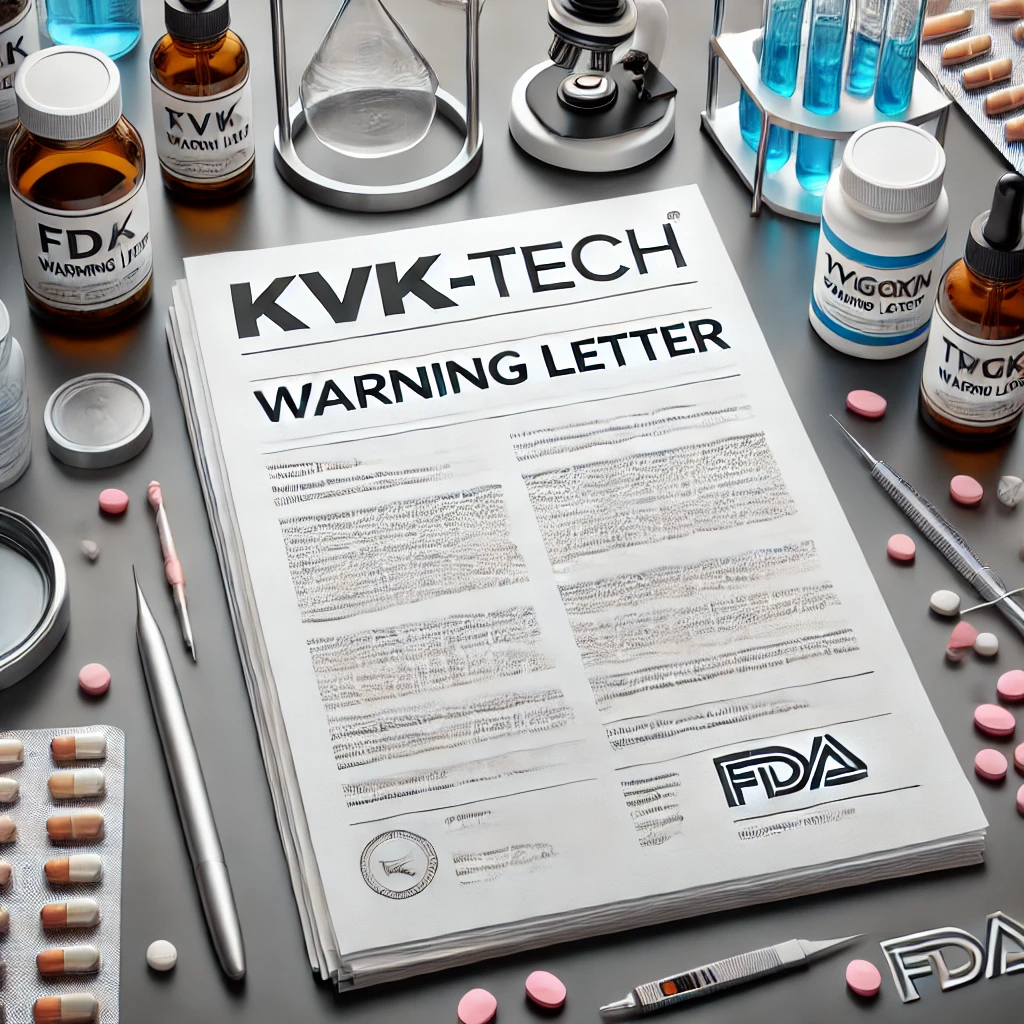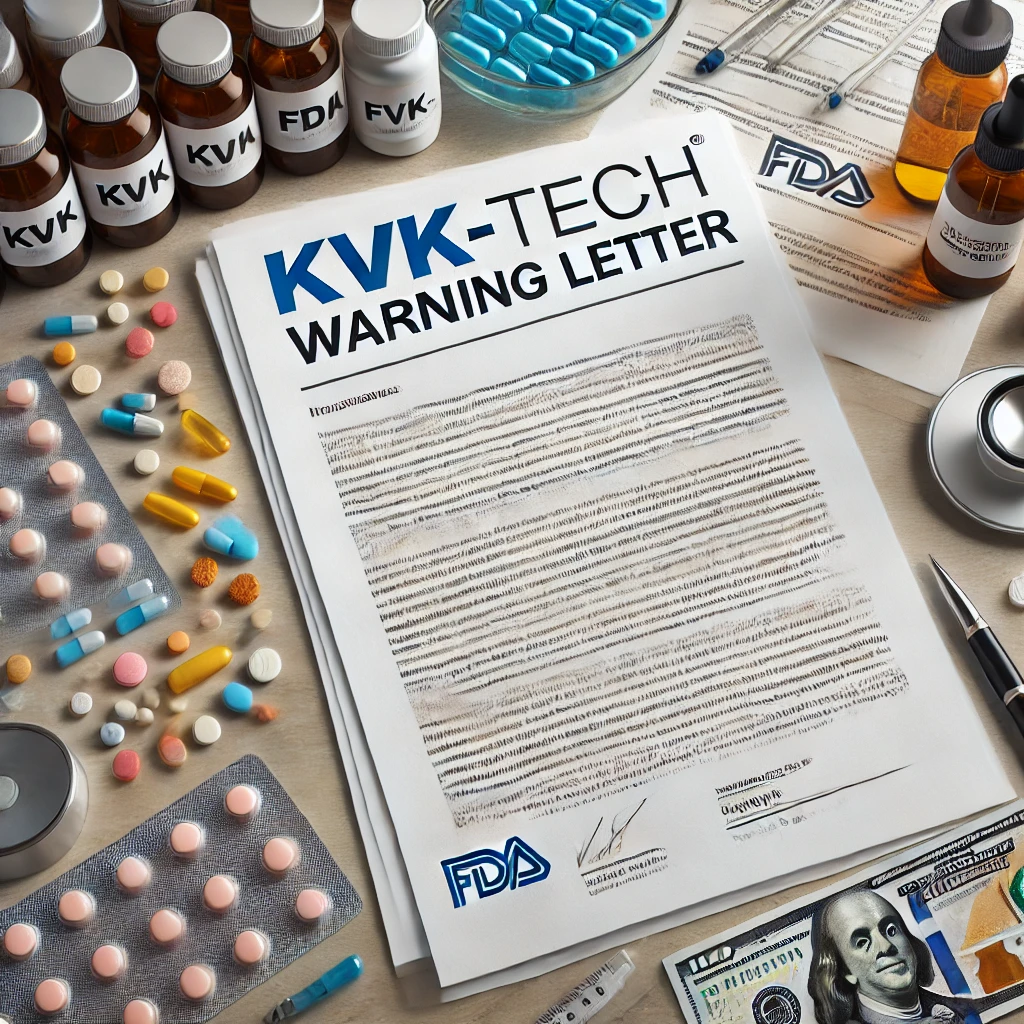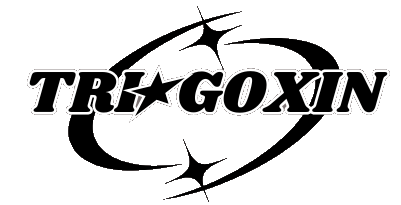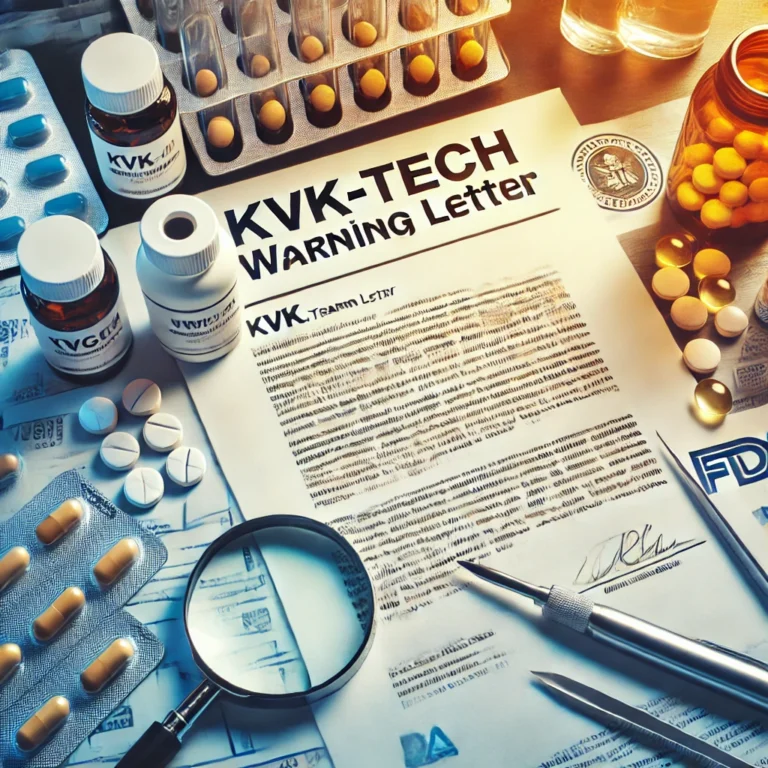Understanding the “KVK-Tech Warning Letter”: Insights and Implications
In the pharmaceutical industry, maintaining compliance with regulatory standards is of utmost importance. When companies fall short of these standards, regulatory agencies such as the U.S. Food and Drug Administration (FDA) take action to ensure public safety. One such example is the “KVK-Tech warning letter,” which has been a topic of interest and concern among industry professionals and stakeholders.

What is the “KVK-Tech Warning Letter”?
The “KVK-Tech warning letter” is a formal notification issued by the FDA to KVK-Tech, a pharmaceutical manufacturing company. This warning letter typically highlights violations of regulatory requirements that were identified during inspections of the company’s facilities. These violations can range from lapses in good manufacturing practices (GMP) to discrepancies in documentation and quality control processes.
The Context Behind the “KVK-Tech Warning Letter”
Regulatory compliance in the pharmaceutical sector is non-negotiable, as it directly impacts the safety and efficacy of medications. The issuance of a “KVK-Tech warning letter” often stems from an FDA inspection that uncovers issues warranting immediate attention. These inspections are rigorous, aimed at safeguarding public health by ensuring that manufacturers adhere to stringent quality standards.

The “KVK-Tech warning letter” is not an isolated incident but rather part of a broader regulatory framework. The FDA conducts regular and unannounced inspections of pharmaceutical facilities to ensure compliance with GMP standards. When violations are found, the consequences can be severe, ranging from warning letters to product recalls and even facility closures. The “KVK-Tech warning letter” is an example of how the FDA holds companies accountable for maintaining the highest levels of safety and quality.
Key Issues Highlighted in the “KVK-Tech Warning Letter”
While each “KVK-Tech warning letter” may address specific concerns, common issues include:
- Non-compliance with GMP Standards: Good Manufacturing Practices ensure that products are consistently produced and controlled according to quality standards. Deviations from GMP can compromise product safety. GMP violations often include improper sanitation practices, lack of proper employee training, and insufficient process validation.
- Inadequate Quality Control Systems: The absence of robust quality control measures is often a significant finding in the “KVK-Tech warning letter.” Quality control systems are essential for detecting and addressing defects before products reach consumers. Without these systems, there is an increased risk of defective or unsafe products entering the market.
- Deficient Documentation Practices: Accurate and complete documentation is critical for traceability and accountability. Missing or falsified records can raise red flags during FDA inspections. The “KVK-Tech warning letter” often emphasizes the importance of maintaining transparent and reliable records to ensure regulatory compliance.
- Subpar Facility Maintenance: Cleanliness and proper maintenance of manufacturing facilities are essential to prevent contamination and ensure product integrity. The “KVK-Tech warning letter” frequently highlights instances where facility conditions fall short of FDA standards, such as inadequate ventilation, improper storage of raw materials, and poorly maintained equipment.
- Lack of Investigations into Deviations: When deviations from standard operating procedures occur, thorough investigations are necessary to determine root causes and prevent recurrence. The “KVK-Tech warning letter” often identifies instances where such investigations were either insufficient or entirely absent.
Implications of Receiving a “KVK-Tech Warning Letter”
The “KVK-Tech warning letter” is not merely a slap on the wrist; it carries significant implications for the company. These include:
- Operational Impact: Companies may need to halt production until issues are resolved. This can lead to delays in product availability and revenue loss. The operational disruptions caused by the “KVK-Tech warning letter” can be extensive, affecting supply chains and partnerships.
- Reputational Damage: Receiving a “KVK-Tech warning letter” can harm the company’s reputation within the industry and among consumers. Stakeholders may question the company’s commitment to quality and safety, leading to a loss of trust.
- Financial Repercussions: Addressing the deficiencies outlined in the warning letter often requires substantial financial investment. Companies may need to invest in new equipment, hire additional staff, or retrain existing employees to meet regulatory standards. The “KVK-Tech warning letter” can also result in legal costs and potential fines.
- Increased Regulatory Scrutiny: A “KVK-Tech warning letter” can lead to more frequent and rigorous inspections in the future. Companies that fail to address the issues adequately may face additional enforcement actions, such as fines, injunctions, or even product seizures.
Steps to Address a “KVK-Tech Warning Letter”
When a company receives a “KVK-Tech warning letter,” prompt action is essential. The following steps are typically taken:
- Root Cause Analysis: Identifying the underlying causes of the issues highlighted in the “KVK-Tech warning letter” is the first step toward resolution. This involves a detailed review of processes, procedures, and practices to determine where lapses occurred.
- Corrective and Preventive Actions (CAPA): Implementing CAPA ensures that the identified problems are resolved and do not recur. The “KVK-Tech warning letter” often specifies areas where CAPA efforts should be focused, such as improving training programs or upgrading equipment.
- Comprehensive Response to the FDA: Companies must submit a detailed response outlining their corrective actions and timelines to address the findings in the “KVK-Tech warning letter.” This response should demonstrate a commitment to compliance and provide evidence of progress.
- Third-Party Audits: Engaging external auditors can provide an objective assessment of compliance efforts and help regain regulatory confidence. Third-party audits are particularly valuable in verifying the effectiveness of corrective actions and identifying any remaining gaps.
- Enhanced Training Programs: The “KVK-Tech warning letter” often highlights the need for better employee training. Companies should develop comprehensive training programs to ensure that staff understand and adhere to regulatory requirements.
Lessons Learned from the “KVK-Tech Warning Letter”
The “KVK-Tech warning letter” serves as a cautionary tale for other pharmaceutical companies. It underscores the importance of:
- Proactive Compliance Measures: Regular internal audits and staff training can prevent regulatory violations. The “KVK-Tech warning letter” demonstrates the value of staying ahead of potential issues by implementing robust compliance programs.
- Investment in Quality Assurance: Robust quality assurance systems are non-negotiable in ensuring compliance. The “KVK-Tech warning letter” highlights the risks associated with cutting corners in quality assurance processes.
- Transparency with Regulators: Open communication with regulatory bodies fosters trust and facilitates resolution of issues. The “KVK-Tech warning letter” shows that companies must be forthright in addressing deficiencies and committed to continuous improvement.
Conclusion
The “KVK-Tech warning letter” is a critical reminder of the pharmaceutical industry’s responsibility to uphold the highest standards of quality and safety. While the consequences of receiving such a warning are severe, they also provide an opportunity for companies to reassess their practices and improve. By learning from the “KVK-Tech warning letter,” industry players can take proactive steps to ensure compliance, protect public health, and maintain their standing in the market.
As the industry continues to evolve, the lessons from the “KVK-Tech warning letter” remain relevant for all stakeholders. By prioritizing compliance and quality, companies can build trust and contribute to a safer healthcare landscape. The “KVK-Tech warning letter” is not just a warning; it is a call to action for the entire pharmaceutical industry to strive for excellence in all aspects of their operations.
Frequently Asked Questions (FAQ) about KVK-Tech Warning Letter
General Information
Q1: What is a KVK-Tech Warning Letter? A: A KVK-Tech Warning Letter refers to an official notification issued by the U.S. Food and Drug Administration (FDA) to KVK-Tech, a pharmaceutical company, highlighting non-compliance with FDA regulations. These letters typically address issues such as manufacturing practices, product quality, labeling, or other regulatory concerns.
Q2: Why does the FDA issue Warning Letters? A: The FDA issues Warning Letters to pharmaceutical companies like KVK-Tech when it identifies significant violations during inspections. These letters serve as formal notices, requiring the company to address and correct the issues promptly to avoid further regulatory actions.
Q3: Is a Warning Letter a public document? A: Yes, FDA Warning Letters, including those addressed to KVK-Tech, are public records. They are typically published on the FDA’s official website to ensure transparency and accountability.
Specifics of KVK-Tech Warning Letters
Q4: What were the key issues in KVK-Tech’s Warning Letters? A: Past KVK-Tech Warning Letters have raised concerns about violations in Good Manufacturing Practices (GMP), deficiencies in quality control, and inadequate documentation processes. Specific details depend on the findings from FDA inspections.
Q5: How often does KVK-Tech receive Warning Letters? A: The frequency of Warning Letters depends on FDA inspection outcomes. Companies like KVK-Tech are subject to regular inspections, and Warning Letters are issued only if significant violations are detected.
Q6: What actions has KVK-Tech taken in response to these Warning Letters? A: Upon receiving a Warning Letter, KVK-Tech is required to submit a corrective action plan to the FDA. The company typically implements changes to address the identified deficiencies and prevent future violations.
Impact on Consumers
Q7: Does a Warning Letter mean KVK-Tech’s products are unsafe? A: Not necessarily. A Warning Letter indicates regulatory violations but does not automatically mean the products are unsafe. However, it highlights the need for improved compliance to maintain quality and safety standards.
Q8: Should consumers stop using KVK-Tech products after a Warning Letter? A: Consumers should consult their healthcare providers if they have concerns about any medication. The FDA monitors products closely and takes necessary actions if a product poses a risk.
Q9: Can a Warning Letter lead to product recalls? A: Yes, if the violations indicate a significant risk to public health, the FDA may require KVK-Tech to recall specific products as part of its enforcement actions.
Regulatory and Legal Consequences
Q10: What happens if KVK-Tech fails to address a Warning Letter? A: Failure to respond adequately to a Warning Letter can result in escalated enforcement actions, such as product seizures, injunctions, or civil penalties.
Q11: How does a Warning Letter affect KVK-Tech’s reputation? A: Warning Letters can negatively impact a company’s reputation, as they signal regulatory non-compliance. This may affect customer trust and business relationships.
Q12: Can KVK-Tech face legal action due to Warning Letters? A: Yes, if the company does not take corrective actions or continues to violate regulations, it could face legal actions, including fines and operational restrictions.
Monitoring and Compliance
Q13: How does the FDA ensure KVK-Tech complies with regulations after a Warning Letter? A: The FDA conducts follow-up inspections to verify that KVK-Tech has implemented the required corrective actions. The company must also provide detailed documentation of its compliance efforts.
Q14: What role does KVK-Tech’s quality assurance team play in preventing Warning Letters? A: The quality assurance team is crucial in maintaining compliance by monitoring manufacturing processes, ensuring proper documentation, and conducting regular audits to identify and address potential issues proactively.
Q15: How can KVK-Tech prevent future Warning Letters? A: KVK-Tech can prevent future Warning Letters by adhering to FDA regulations, investing in employee training, improving quality systems, and conducting routine internal reviews to identify and resolve compliance gaps.
Consumer Awareness
Q16: Where can I find more information about KVK-Tech Warning Letters? A: Detailed information about KVK-Tech Warning Letters can be found on the FDA’s official website under the Enforcement Reports section.
Q17: How can I report issues with KVK-Tech products? A: Consumers can report adverse effects or quality concerns through the FDA’s MedWatch program, accessible online or via a toll-free number.
Q18: How do I know if KVK-Tech products meet safety standards now? A: The FDA continuously monitors pharmaceutical companies, including KVK-Tech. If products remain on the market, it generally indicates that they meet current regulatory standards.
This FAQ aims to provide comprehensive insights into KVK-Tech Warning Letters and their implications for consumers, the company, and regulatory compliance. For additional inquiries, contact KVK-Tech or consult the FDA’s resources.

